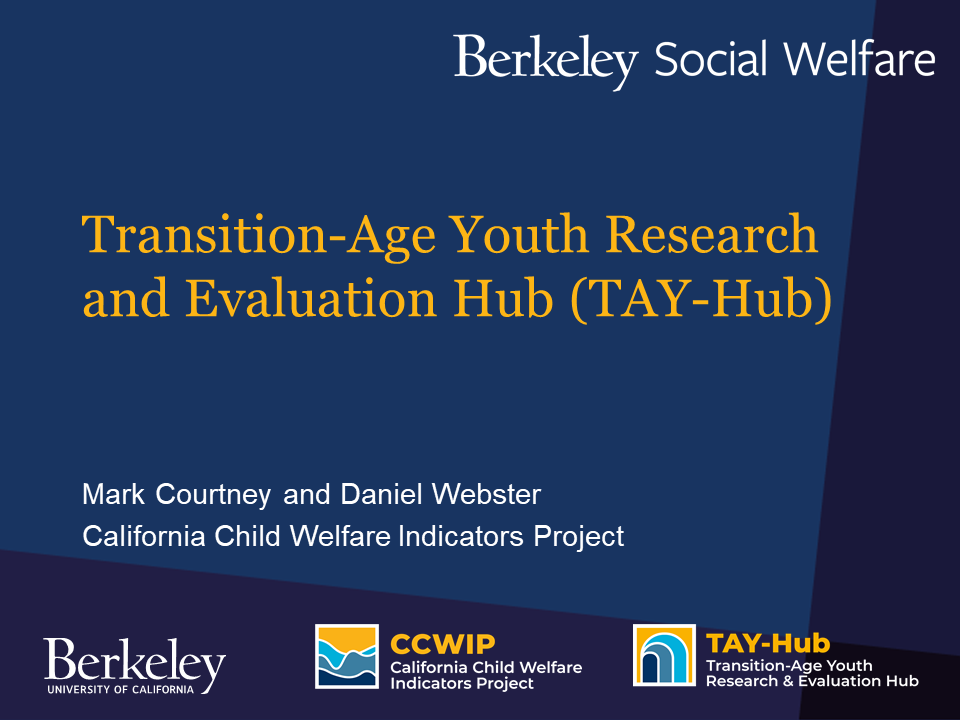
The Transition-Age Youth Research and Evaluation Hub (TAY-Hub) is a university-based research collaborative housed within the California Child Welfare Indicators Project at the University of California, Berkeley. The TAY-Hub specializes in research related to policies and practices affecting transition-age youth by monitoring outcomes and through applied research. This work is grounded in engagement with members of the child welfare services community, including those with lived experience of foster care.
The work of the TAY-Hub is informed by the California Youth Transitions to Adulthood Study (CalYOUTH). CalYOUTH began in 2012 in response to California’s adoption of the Federal Fostering Connections to Success and Increasing Adoptions Act of 2008 (Fostering Connections). California’s Fostering Connections Act (commonly known as AB12) extended the age of eligibility for foster care from 18 to 21 for transition-age youth (TAY) in foster care.
Coinciding with the conclusion of the CalYOUTH study in 2022, we are launching the TAY-Hub to build upon and enhance California’s capacity to generate and analyze data on TAY in care. The specific goals of the TAY-Hub are to:
We hope that demonstrating the success of this kind of public-private partnership in improving services to TAY will lay the groundwork for expanding the work to focus on all children and families involved with the child welfare system.
Mark E. Courtney is the Samuel Deutsch Professor in the School of Social Service Administration at the University of Chicago and visiting researcher for the California Child Welfare Indicators Project at the University of California, Berkeley. As a visiting researcher, Dr. Courtney co-directs The Transition Age Youth Research and Evaluation Hub (TAY-Hub). He obtained his MSW and PhD degrees from the School of Social Welfare at the University of California at Berkeley. Before moving into academia, he worked for several years in various capacities providing group home care to abused and neglected adolescents.
Andrea Lane Eastman’s research uses linked, administrative data to document population-level disparities and answer policy relevant questions concerning youth in child protection and juvenile justice systems. Dr. Eastman has been a Research Assistant Professor at the USC Suzanne Dworak-Peck School of Social Work with the Children’s Data Network since 2019. She graduated from UCLA with a Bachelor’s in Psychology, received her MFT from Pepperdine University, and earned a PhD in Social Work from USC. While obtaining her MFT, Dr. Eastman provided therapy for families who experienced child maltreatment.